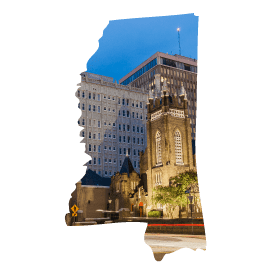Alternate Route Usage and Providers:
Mississippi
Expanding the Pool of Teachers Policy
Analysis of Mississippi's policies
Mississippi limits the usage of its alternate routes. Mississippi's alternate routes cannot be used for elementary K-3 certification.
The Mississippi Alternate Path to Quality Teachers candidates may only teach in the areas of art, biology, business, chemistry, English, French, German, home economics, marketing, math, music, physical education, physics-social studies, Spanish, speech communications, technology education and special education for grades 7-12.
Master of Arts in Teaching candidates may only teach in the areas of art, biology, business, chemistry, elementary education for grades 4-8, English, French, German, home economics, marketing, math, music, physical education, physics, social studies, Spanish, speech communications and technology education.
Teach Mississippi candidates may only teach in the areas of biology, business, chemistry, English, French, German, home economics, marketing, math, physics, social studies, Spanish, speech communications, technology education and special education in grades 7-12.
American Board Certification for Teacher Excellence (ABCTE) candidates may only teach in the areas of biology, chemistry, English, math and physics in grades 7-12.
Although the state is host to a diversity of providers, including ABCTE and Teach For America, all programs operate in partnership with a university or college. Further, the specific requirements for the state's three alternate routes are articulated in terms of credit hours, effectively precluding non-higher education providers.
Recommendations for Mississippi
Broaden alternate route usage.
Mississippi should reconsider grade-level and subject-area restrictions on its alternate route. Alternate routes should not be programs of last resort for hard-to-staff subjects, grade levels or geographic areas but rather a way to expand the teacher pipeline throughout the state.
Further expand the diversity of alternate route providers.
The state should continue to consider policies that encourage additional providers, such as school districts and other nonprofit organizations, to operate programs.
State response to our analysis
Mississippi recognized the factual accuracy of this analysis.
Select another topic
Delivering Well Prepared Teachers
- Admission into Preparation Programs
- Elementary Teacher Preparation
- Elementary Teacher Preparation in Reading Instruction
- Elementary Teacher Preparation in Mathematics
- Middle School Teacher Preparation
- Secondary Teacher Preparation
- Secondary Teacher Preparation in Science
- Secondary Teacher Preparation in Social Studies
- Special Education Teacher Preparation
- Assessing Professional Knowledge
- Student Teaching
- Teacher Preparation Program Accountability
Expanding the Pool of Teachers
Identifying Effective Teachers
- State Data Systems
- Evaluation of Effectiveness
- Frequency of Evaluations
- Tenure
- Licensure Advancement
- Equitable Distribution

